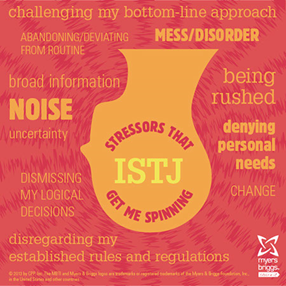Over the last 8 months, we as business leaders have had to rapidly adapt our management to address the ‘next normal’ as we embrace the idea that things may never return to the ‘normal’ we once knew. As we look back at our COVID saga, there were different phases along the way:
- COVID Anxiety – As the virus spread beyond China to our countries, we knew relatively little about it. How deadly was it? How does it spread? We scrambled to determine how to adapt our business practices to overcome the understandable fears of our clients and employees.
- COVID Uncertainty – As government officials made the cathartic decisions to lockdown businesses and social activities, we shifted our attention to survival mode. How can we take advantage of government subsidies to keep our people working and our business afloat? We worked to communicate our plans to our clients and staff to provide assurances.
- COVID Resilience – Once, we got our feet back under us and business began to resume. We shifted our attention to offensives strategies rather than defensive strategies. What new opportunities are being created by the pandemic? Which industries will actually thrive? How do our clients need help evolving to meet the challenges?
- COVID Fatigue – Four to six months into the pandemic, we were getting feedback from our employees that they were tiring of the grind, so we renewed our commitment to their personal well-being. What are effective and safe ways to have people return to the workplace? If not, how can we develop and manage our virtual culture? We were once again called to innovate in how we lead and support our people.
So, what’s next? Lately, we’ve been hearing from our clients that it may be COVID Depression. Our fatigue exacerbated the COVID resurgence, political/social unrest, and now the call to avoid family gathering for the holidays. How are our employees handling the longevity of the pandemic? How will we respond to the on-coming wave when we feel like we’ve already depleted our tanks?
Coping with Depression
Health Matters offers some useful suggestions in their article, “How to Avoid Depression During the Coronavirus Outbreak”. As we further self-isolate to reduce further spread, tips for preventing depression that we can apply to our businesses include:
- Find the hope – That might sound difficult during this time, but now perhaps more than ever we as business leaders need to dig deep and give our people reason to have faith.
- Keep a schedule – Some people may have lost or are tiring of their usual routines. How can we provide our people with enough structure, so they can feel productive without being micro-managed?
- Be productive with free time – Rather than succumbing to isolation as a prison, we can see the opportunity to create free time. How can we encourage our people to use their free time to replenish themselves?
- Connect with others (even if it is not face to face) – Ok, we’ve tried to create virtual water coolers, created ‘play-time’ activities for our employees, and so on. What’s working and where can we do better?
- Reframing our perspective – If we recognize the warning signs that lead to depression, we can help our people process the experience, keep active and connected, maintain as much of a routine as we can, and build resilience as we weather the crisis.
Managing Stress
Based on our research on Myers Brigg types within our community, we have found that most engineers have a preference for introversion, sensing factual information, logical decision making, and being highly organized in their approach to work and life.) This type is know as ISTJ. When faced with stress overload, they may fall into “catastrophe mode”, where they see nothing but all the potential of what could go wrong. They may beat themselves up; for doing things differently, or duties which they failed to perform. They may note see things calmly and reasonably, and can become depressed at what they see as a bleak future. Under chronic stress, the they may fall into the grip of their inferior function, extroverted intuition, and become a “dramatizer”. They may become intensely angry, rigid in what they’re doing, outwardly critical, pessimistic, and embrace an overwhelming fear of the future.
 What can stress out an ISTJ:
What can stress out an ISTJ:
– Being in an environment that is in disarray
– Looming deadlines
– Being forced to do things that don’t make sense
– Being asked to do without a plan or direction
– Frequent change
– Having to innovate without any past experience
– Being asked to do something spontaneously
– Too much extraversion (excess people contact)
– Emotionally charged situations
– Unfamiliar surroundings
– Dealing with abstract or theoretical concepts.
How to support an ISTJ experiencing stress:
– Give them plenty of space.
– Listen and affirm how they’ve overcome something.
– Break a task down into manageable pieces.
– Do not give generalized compliments.
– Put things that have to be done in sequential order.
– Don’t brainstorm. It may actually make things worse.
– Don’t give them more to do. Give them a break from responsibilities if possible.
– Take them seriously. Don’t patronize or judge them.
– Encourage them to exercise, unless this would sound like an insult
Being There for Them (and Each Other)
So, let’s renew our focus on serving our employees to endure and prevail. Let’s make sure that we are engaging them freshly with an open environment that can include sharing uncomfortable and vulnerable topics like depression. And, let’s work to understand how to best support those who may be in crisis and encourage them to get the help they need. On a positive note, taking care of our people can actually be a stress reliever. By helping our people cope with their stress, such as by providing social support, we can also make our organizations stronger.




